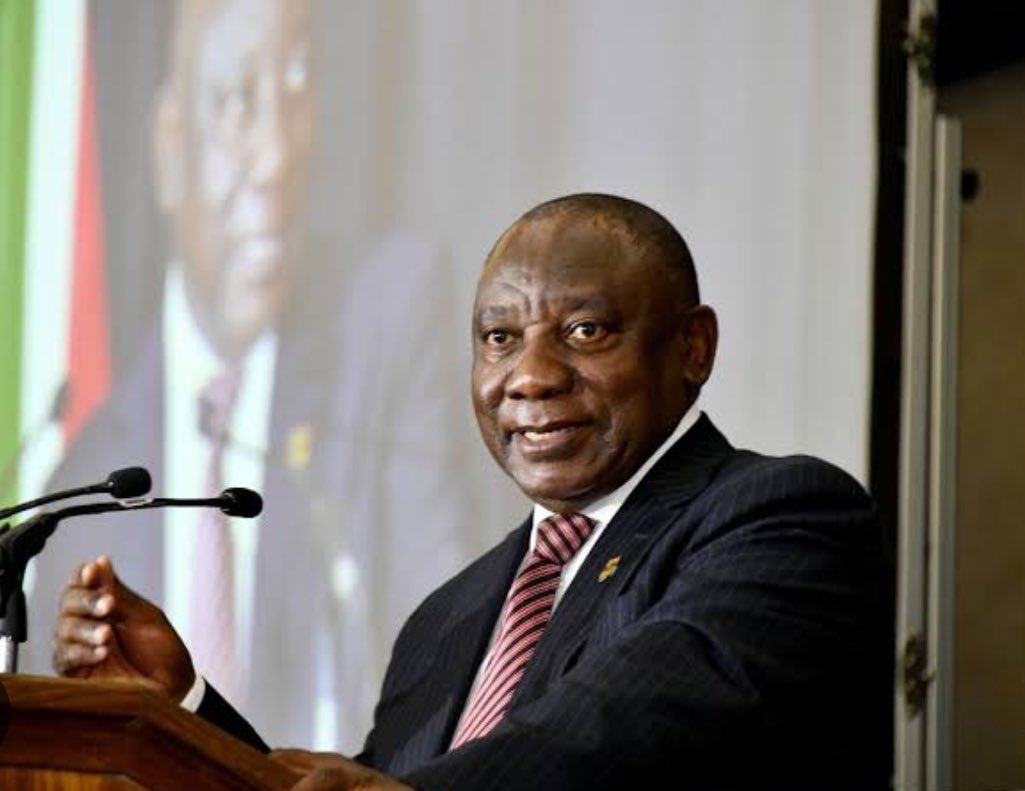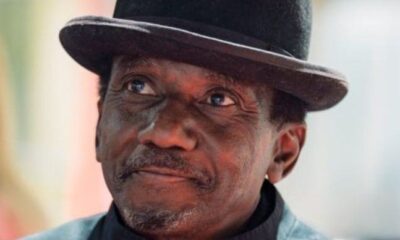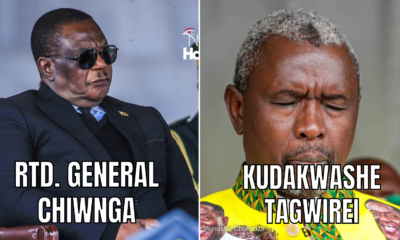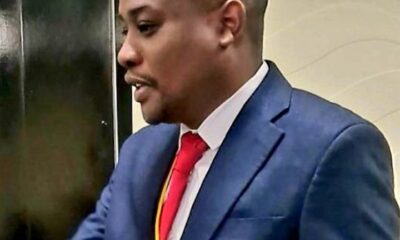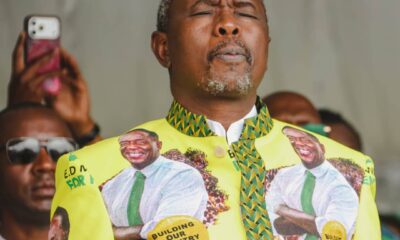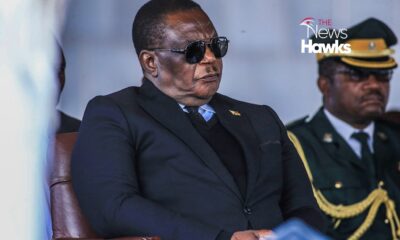Ramaphosa accepts election results
BRENNA MATENDERE
SOUTH African President Cyril Ramaphosa has statesmanly accepted and embraced the outcome of the country’s general elections in which the governing ANC lost its majority for the first time since the fall of apartheid in 1994, saying the people have spoken in “free, fair, credible and peaceful” polls.
Ramaphosa, looking calm and relaxed, said the results are a victory for “democracy, our constitutional order and the people”.
Ramaphosa said:
“Our people have spoken. As the leaders of political parties, as all those who occupy positions of responsibility in society, we have heard the voices of our people and we must respect their wishes.
“Over the past 30 years, we have strived together to build a country which everyone – black and white, man and women, young and old – can call home.
“This election has reaffirmed building a South Africa for all remains the defining mission of our nation.
“Over the course of the election campaign, parties and candidates have at times differed, often forcefully. They have expressed a wide variety of views that are often at odds with each other.
“This is a welcome and necessary feature of a robust democracy. “
Yet, throughout the election campaign, parties and candidates have held fast to the fundamental principles of democracy.
“Parties and candidates have affirmed the right of voters to participate in an election that is free, fair and peaceful.
“And now, we are all called upon to recognise that the results of the election reflect the will of the people.
“What this election has made plain is that the people of South Africa expect their leaders to work together to meet their needs.
“They expect the parties for which they have voted to find common ground, to overcome their differences, to act and work together for the good of everyone.”
He also commended the Independent Electoral Commission for how it handled the elections despite many logistical, technical and organisational challenges.
Ramaphosa’s remarks showed the difference between the ANC and Zanu PF in Zimbabwe in terms of how they appreciate and relate to democratic processes, elections and governance.
While the ANC is democratic in its form and content, as well as philosophy and disposition, Zanu PF is inherently authoritarian and repressive to the core.
If it were in Zimbabwe, the elections would have been stolen and the opposition brutally suppressed.
The electoral commission would be captured and commandeered to release stolen or fraudulent results.
When Zanu PF and its leader, the late former president Robert Mugabe, lost elections in 2008, they reacted with unrestrained anger, violence, brutality, fraud and brazen electoral theft — unleashing fierce retribution.
Zimbabwe’s presidential, parliamentary and municipal elections were held on 29 March 2008 amid an economic meltdown and hyperinflation.
Unofficial preliminary results indicated that main opposition MDC-T leader Morgan Tsvangirai was winning, but, as days passed with a slow, partial release of parliamentary results (and complete absence of presidential results), many feared that Mugabe and Zanu PF were manipulating the outcome of the elections in their favour or engineering a fake runoff, which is what they most likely did.
The MDC released its own set of presidential election results on 2 April which indicated that Tsvangirai had won slightly more than half the votes.
The MDC’s calculations were dismissed by Zanu PF, and the country continued to wait for official results.
Later that day, results indicated Tsvangirai’s faction of the MDC had won the most seats in the House of Assembly, beating Zanu PF which lost its majority for the first time in 1980. Zanu PF’s defeat was worse than the ANC’s current decline. The MDC became the largest party in the House of Assembly, winning 100 out of 210 seats, while Zanu PF won 99. The smaller MDC formation led by Arthur Mutambara had 10 seats and one independent got a seat. In the senate, Zanu PF remained the largest party with 30 seats, but the MDC-T had 24 and MDC six, which left them balanced, but the ruling party had an South Africa’s ANC leader Cyril Ramaphosa place and we are all awaiting the Zec to announce the results, and there is also the matter of the court case. “The body authorised to release the results is Zec. Let’s wait for them to announce the results.” advantage as it aligned with special interest senators. T he final results for the presidential contest were not officially released until 2 May, when it was announced that Tsvangirai had garnered (47.9%) and Mugabe (43.2%). However, since Tsvangirai had not secured a majority of the votes in terms of the official results, a runoff election would be necessary, which was later scheduled for 27 June. In the meantime, in April the government clandestinely deployed the army across the country to unconstitutionallly and illegally campaign for Mugabe in the contrived runoff. Through a campaign of fear, intimidation and violence, the military managed to retain Mugabe in office after his rival, Tsvangirai, had withdrawn citing a bloodbath underway and an inevitable theft of the result. Ironically, former South African president Thabo Mbeki, who was mediating in the Zimbabwe crisis, said there was “no crisis” in the country. Mbeki said there was ”no crisis” in Zimbabwe after holding his f irst face-to-face talks with Mugabe over the situation. Having stopped in Harare on his way to join southern African leaders in Zambia for an emergency meeting on Zimbabwe, Mbeki said people should wait for the Zimbabwe Electoral Commission (Zec) — run by Zanu PF supporters, some of whom act like activists — to announce the long-awaited presidential result. Mbeki said: “There has been a natural process taking Mbeki’s fierce rival and likely successor Jacob Zuma, who was then leader of the ANC, was outspoken on the crisis facing the country’s northern neighbour. Zuma said: “Zimbabwe is something we need to take very serious note of. We have never heard of elections being conducted and counted and the commission not allowing the result. “I have never heard of this. It is only in Zimbabwe. It is unprecedented. I think we should urge and plead with our brothers and sisters to resolve the problem so that Zimbabwe will not be plunged into a more serious crisis.” After that, Mbeki, backed by the Sadc region, forced Mugabe into a government of national unity with Tsvangirai from 2009 to 2013. However, Zanu PF reacted viciously to the situation. Although the constitution allows for multiple parties, Zanu PF, through the use of government and paramilitary forces, intimidated and committed abuses against opposition parties and their supporters and sabotaged their activities. The Joint Operations Command (Joc), which brought together the police, intelligence and the army service chiefs, took charge to rescue Mugabe and Zanu PF. The government engaged in the pervasive and systematic abuse of human rights. The ruling party’s dominant control and manipulation of the political process through violence, intimidation, and corruption effectively negated the right of citizens to change their government. Brutal killings and abductions increased. State-sanctioned use of excessive force grew, and security forces tortured members of the opposition, student leaders, and civil society activists with impunity. Security forces also refused to document cases of political violence committed by ruling party loyalists against members of the opposition. Prison conditions were harsh and life threatening. Security forces, who regularly acted with impunity, arbitrarily arrested and detained the opposition, members of civil society, labour leaders, journalists, demonstrators, and religious leaders; lengthy pre-trial detention was a problem. Executive influence and interference in the judiciary was pervasive. The government continued to evict citizens and to demolish homes and informal marketplaces. It used repressive laws to suppress freedoms of speech, Press, assembly, association, academic freedom, and movement. T hat is the difference between ANC and Zanu PF, alternatively also the difference between Zimbabwe and South Africa.
